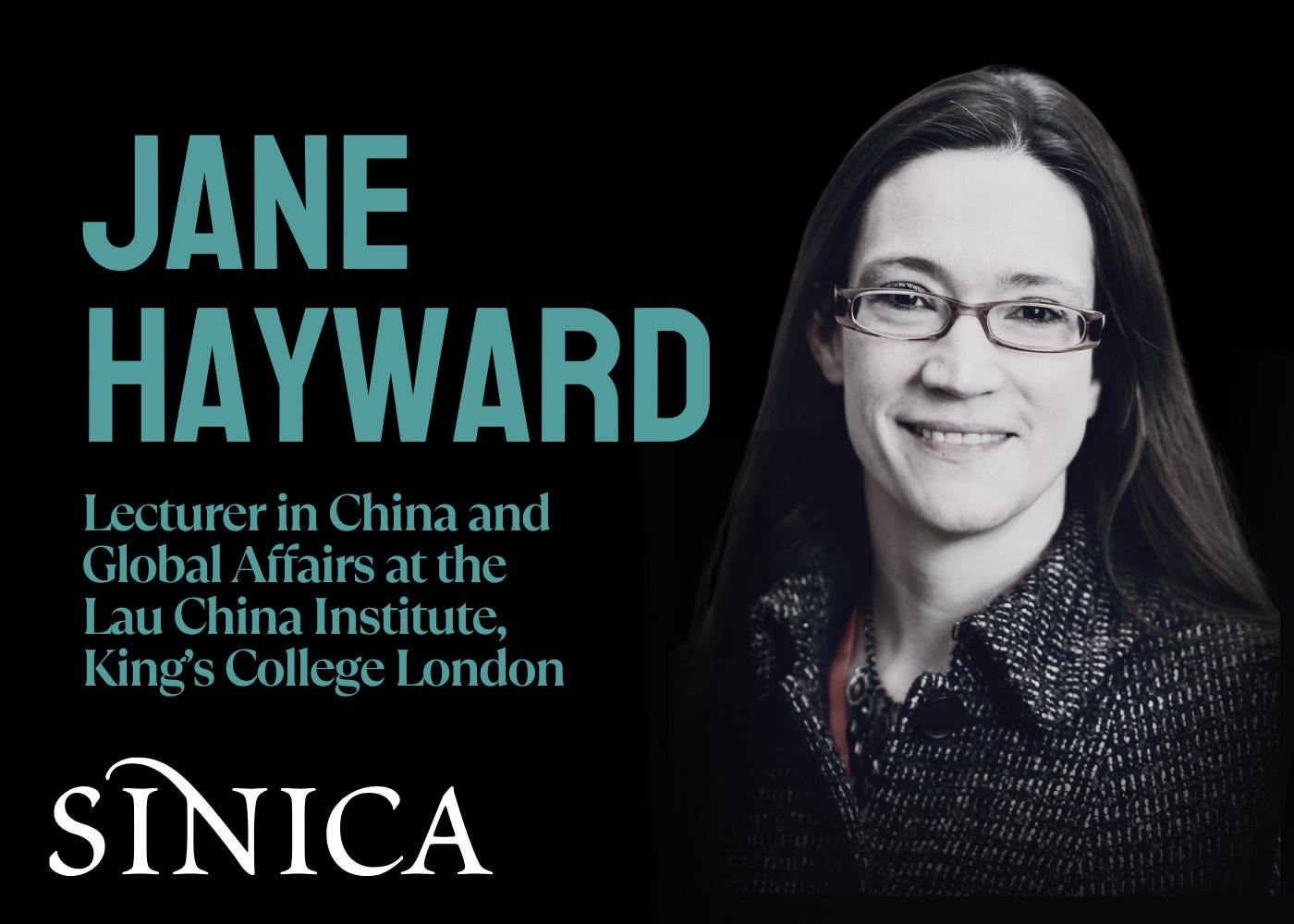Transcript: Jane Hayward of King's College on Teaching China through YouTube
Below is a complete transcript of the episode. Thanks to CadreScripts for their great work, to Lili Shoup for checking and formatting, and to Zhou Keya for the image! Listen in the embedded player above.
Kaiser Kuo: Welcome to the Sinica Podcast, a weekly discussion of current affairs in China. In this program, we’ll look at books, ideas, new research, intellectual currents, and cultural trends that can help us better understand what’s happening in China’s politics, foreign relations, economics, and society. Join me each week for in-depth conversations that shed more light and bring less heat to how we think and talk about China. I’m Kaiser Kuo, coming to you from Chapel Hill, North Carolina.
Sinica is supported this year by the Center for East Asian Studies at the University of Wisconsin-Madison, a national resource center for the study of East Asia. The Sinica Podcast will remain free, but if you work for an organization that believes in what I’m doing with the podcast, please consider lending your support. You can get me at sinicapod@gmail.com.
And listeners, please support my work at www.sinicapodcast.com. Become a subscriber and enjoy, in addition to the podcast, the complete transcript of the show, essays for me, as well as writings and podcasts from some of your favorite China-focused columnists and commentators with offerings like the China Global South Podcast, James Carter’s This Week in China’s History, The Ultimate China Bookshelf by Paul French, Andrew Methven’s Sinica Chinese Phrase of the Week, and much more.
Each week when I introduce the show, I talk about how I try, through the guests that I invite onto the program and the conversations we have, to bring more light and less heat to how we think and talk about China. For me, this isn’t just boilerplate — it’s a mission statement of sorts. Well, this week, I am delighted to be joined on Sinica by someone who I don’t think it’s too presumptuous to say is also very much dedicated to that same mission. Jane Hayward is Lecturer in China and Global Affairs at the Lau China Institute, King’s College London. Her PhD is from NYU in East Asian Studies, and she has done post-doctoral work at both the Oxford China Center and at Tsinghua University in Beijing. Those are some very impressive credentials. And her academic work looks very interesting.
But the real reason I asked her to join the show is that for roughly the last year, she’s been publishing short videos, usually between four and six minutes long, tackling topics related to China. They’re relatively straightforward in terms of production. Jane looks into the lens, jumps straight into the topic, edits them nice and tight, and uses nice imagery to illustrate the things she’s talking about. Along the way, she introduces the viewer to some great China scholars and scholars of related fields like the history of communism, and she takes on bugbears like essentialism and media bias.
And at the same time, she manages to offend, well, pretty much the same lot that Sinica manages to offend, from the more strident apologists and knee-jerk nationalists to the “China bad” ideologues on the other extreme. What she presents instead are accessible, timely, bite-sized, and factually grounded mini lectures on modern and contemporary China that, to judge from the comments, are really resonating with viewers and winning Jane some well-deserved plaudits. Jane Hayward, welcome to Sinica.
Jane Hayward: Thank you. That was extremely generous. Thank you.
Kaiser: I have to say, it’s just great to have somebody on the show who understands firsthand the travails of trying to put out media content regularly in a rather, shall we say, challenging environment. (laughs)
Jane: Yeah.
Kaiser: So, very, very warm welcome to you. Well, so, Jane, what got you interested in doing the YouTube channel in the first place? I mean, was there like some pernicious, widely held belief out there that finally pushed you over the edge, or was it something you’d been planning on doing for some time?
Jane: Oh, that’s a good question. I think there are several pernicious beliefs out there that were driving me over the edge. There was certainly a sort of disconnect between the kinds of discussions that I was having with my academic colleagues and what is out there on the TV, in the public discourse generally.




